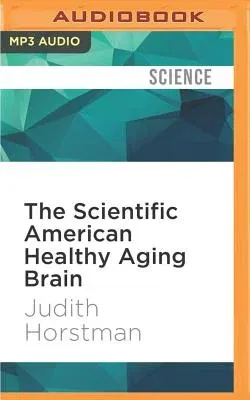Welcome to the new old age! There has never been a better time, in all
of history, to grow old. But will your brain age as well as the rest of
you?
In her fourth engaging book about the brain, Judith Horstman presents a
realistic and encouraging overview of the well-aged brain, a sobering
look at what can go wrong, and the latest in what neuroscience is
finding might help you--and your brain--stay healthy longer.
Culled from articles in Scientific American and Scientific American
Mind as well as current research, the book explains how your brain
grows and the changes to expect in a healthy aging brain.
There's plenty of good news. While your brain does slow down with
passing years, far from disintegrating, the healthy mature brain fades
quite slowly. Short-term memory may not be what it once was, but the
elder brain remains able to change and learn well into old age. And
myths of a miserable old age are just that. In fact, studies show that
for many, happiness increases after the age of 70.
Moreover, dementia, depression, and delusion are not normal parts of
aging but diseases that may be treated. While it's still difficult to
predict what brains will fall prey to Alzheimer's disease, brain
scientists are finding an association between lower risks of dementia
and five healthy lifestyle practices that Horstman shows how to put into
place right now.
A new and positive message about growing older, The Scientific American
Healthy Aging Brain is an indispensable user's manual on how preserve
what you've got, minimize what you've lost, and optimize the vigor and
health of your brain as you grow older.
The accompanying reference guide is included as a PDF on this disc.

